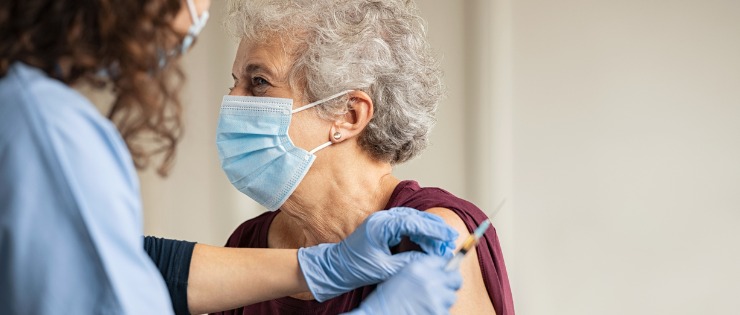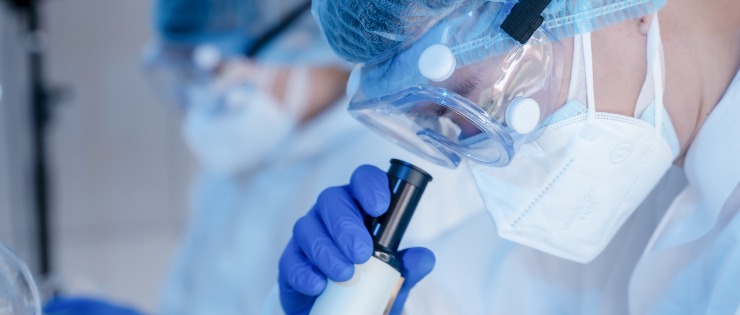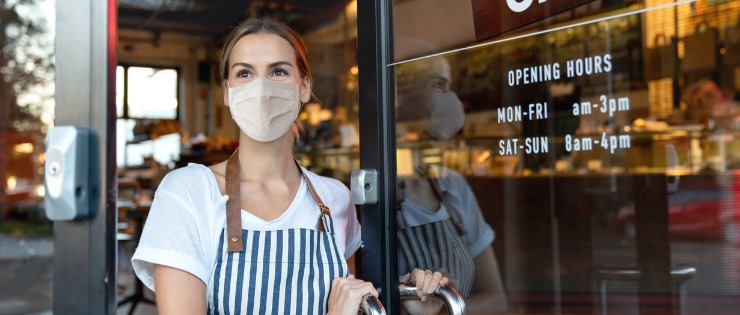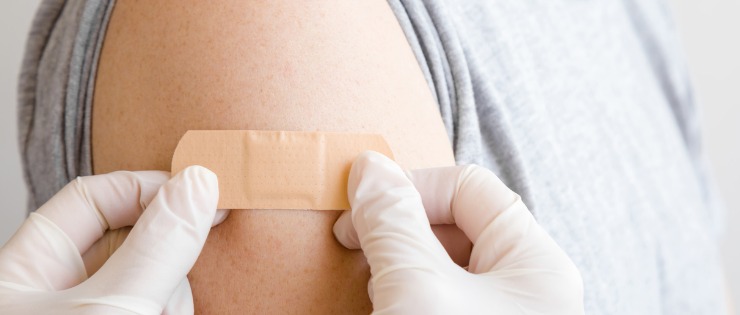
The COVID-19 vaccine must be the most popular topic of conversation this year. Some Australians are strong supporters, others are opposed and then there’s a group that sits somewhere in between. There has been much debate about the efficacy and safety of the two vaccines currently available in Australia. Here we look at what to consider before getting the COVID-19 vaccine.
What is the COVID-19 Vaccine?
Multiple vaccines are available to provide protection against COVID-19. Vaccines have been developed in various countries around the world. The two most popular vaccines being administered in Australia are Pfizer and AstraZeneca.
The ingredients in vaccinations vary according to their purpose, but most vaccines contain the following ingredients:
- Protein component of a virus
- Piece of genetic code (DNA or mRNA)
- Small dose of a weakened virus
- Substance to boost the immune response (an adjuvant)
- Small amount of preservative
- Sterile salt water (saline) for injections.

Reasons for Getting the Vaccine
There are many reasons for having the COVID-19 vaccination.
Vaccinations Help Bring a Virus Under Control
The history of medicine shows that several viruses and diseases have only been brought under control through vaccinating a large proportion of the population. One deadly or life altering disease that has been completely eradicated is Smallpox. Polio is another disease which has been eliminated from most parts of the world with vaccine access.
Vaccinations Can Help the World Return to a New-Normal
Compared to citizens in most nations around the world, Australians have been lucky enough to lead relatively normal lives since the pandemic hit. Most of us have experienced periods of lockdown where we could only leave our homes for groceries, medical attention, exercise and compassionate reasons. Overall, the lockdowns were effective at slowing community transmission.
The main reason for this is the quarantine program that requires most people who enter Australia to quarantine for 14 days. Once returned travellers have received a negative test result, they may head out into the community. But the risk remains that COVID-19 can leak from quarantine locations into the community, resulting in new hot spot declarations and in some cases a lockdown. Enforcing lockdowns can be extremely disruptive to our everyday lives, potentially bringing with them social and economic costs.
While high rates of COVID-19 transmission continue overseas, the Australian government aims to protect its citizens with closed borders. The federal government restricts who can leave and return to Australia to ensure the quarantine system isn’t overloaded. Until the vast majority of Australians are vaccinated, the community is vulnerable and tight border restrictions will likely remain in place.

But Are the Vaccinations Safe?
Millions of people around the world received COVID-19 vaccinations before Australia began its vaccine roll-out. Australia’s suppressed rates of virus transmission mean the vaccine roll-out hasn’t been as urgent in comparison to other countries.
The Australian Therapeutic Goods Administration conducted a thorough review of both vaccines including analysis of clinical trial data, ingredients, chemistry, manufacturing and other factors before declaring them safe and available to the Australian public. The TGA continues to monitor potential side effects of vaccines, both within Australia and overseas.
A rare blood clotting condition called thrombosis with thrombocytopenia syndrome (TTS), mainly occurring in people under 50 years of age, has recently been listed as a possible very rare side effect of the AstraZeneca vaccine. A causal relationship between the AstraZeneca vaccine and blood clots has not been confirmed.
The Australian government has taken a cautious approach by ordering enough Pfizer vaccines for all adults under the age of 50. The AstraZeneca vaccine is still considered safe for people aged 50 years and over.

FAQs about COVID-19 Vaccinations
There are many questions around the COVID-19 vaccination. Here are some of the most common questions and answers.
How Long Does It Take to Be Fully Vaccinated?
Both vaccines, Pfizer and AstraZeneca require two doses for an individual to be fully vaccinated. Optimal protection occurs one to two weeks after the second dose. If you’re having the Pfizer vaccine, you will wait three weeks between the first and second dose while the AstraZeneca vaccine needs 12 weeks between the two doses. Before having the first shot, you should check that you will be available to receive your second vaccine dose.
After the Second Dose, Are You Protected Against COVID-19?
After vaccination there is still a chance that you can contract COVID-19. The vaccines greatly reduce your risk of becoming infected as well as decrease the severity of the virus if you do get sick, but don’t completely eliminate the risk. The AstraZeneca vaccine efficacy rate is 82% while the Pfizer vaccine efficacy rate is 91%.
What If I Have a Pre-existing Medical Condition, Should I Still Be Vaccinated?
If you have any concerns about your medical history and the vaccinations, make an appointment to see your doctor.

Can You Still Spread Covid after Being Vaccinated?
Even after you’re fully vaccinated there is still a small chance that you may be infected with the virus that causes COVID-19 and spread it to another person. However, according to the CDC, there is a growing body of evidence to suggest that fully vaccinated people are less likely to have asymptomatic infections and potentially less likely to unknowingly transmit it.
What Are the Side Effects of COVID-19 Vaccines?
Side effects are a normal part of most vaccines, they tell you that the vaccine is working by stimulating a body response. The side effects are mild and usually only last one to three days. Side effects at the site of the injection may include redness, pain and swelling.
Common side effects in the rest of the body may include headache, tiredness and mild fever. Some people experience flu-like symptoms such as muscle pain, chills and fever. If you’re worried about how you will feel after the vaccination, have the vaccine when you do not have to work for a couple of days.
Side effects are more common after the first dose of the AstraZeneca vaccine while people having the Pfizer vaccine report more side effects after the second dose.
How Does a Vaccine Work?
Our immune system utilises red blood cells and white blood cells as tools to help fight infections. When a person first becomes infected with a new pathogen it may take several days or weeks for their body to start using these tools, leaving time for the germs to cause serious illness. After an infection, our immune system remembers these pathogens and the response needed to fight them off. A vaccine’s job is to train our immune system’s memory to recognise specific germs entering the body, triggering an immune response before they can cause serious harm.
Will Australia Monitor the Vaccines?
The TGA is responsible for recording problems with medical devices and side effects to medicines, including COVID-19 vaccinations. Anyone can report their symptoms however mild to the TGA to assist with data collection.
What about Those People Who Don’t Want to Get the COVID Vaccination?
The Australian government has stated that COVID-19 vaccinations remain voluntary.
Will Children Be Vaccinated Against COVID-19?
At this stage, the two COVID-19 vaccinations in Australia are only approved for people over the age of 16. There is currently not enough clinical data to approve the use of either vaccine in children under the age of 16.
Worldwide research has shown children are less likely to contract COVID-19 than adults. While children can still contract COVID-19, fewer children than adults are infected and therefore don’t transmit the virus as readily as adults.
Will I Need a Covid-19 Vaccination Every Year like the Flu Shot?
It’s not yet known how long COVID-19 vaccine protection lasts. Around the world, scientists are checking the length of time antibodies remain after a patient is vaccinated and their effectiveness against different strains and mutations of the virus.
How Do I Know When I’m Eligible for the Vaccine?
The vaccine is being rolled out in phases. The first phase 1A was for front-line quarantine and medical staff as well as health, aged and disability care workers. Phase 1B vaccinations were for other high risk workers such as emergency services, elderly Australians aged 70 and over and Aboriginal and Torres Strait Islanders aged over 50. Phase 2a is for adults 50 years and over, phase 2b is for the population aged 16-49 years and a catch-up of unvaccinated Australians from previous phases. More information is available at vaccination rollout phases.
Is There a Charge for the COVID-19 Vaccination?
No, the Australian government has made the vaccine free for everyone so you can’t be charged for either the vaccine or the appointment to administer the vaccine.
More Information
For more information, see the Australian Department of Health COVID-19 vaccines.